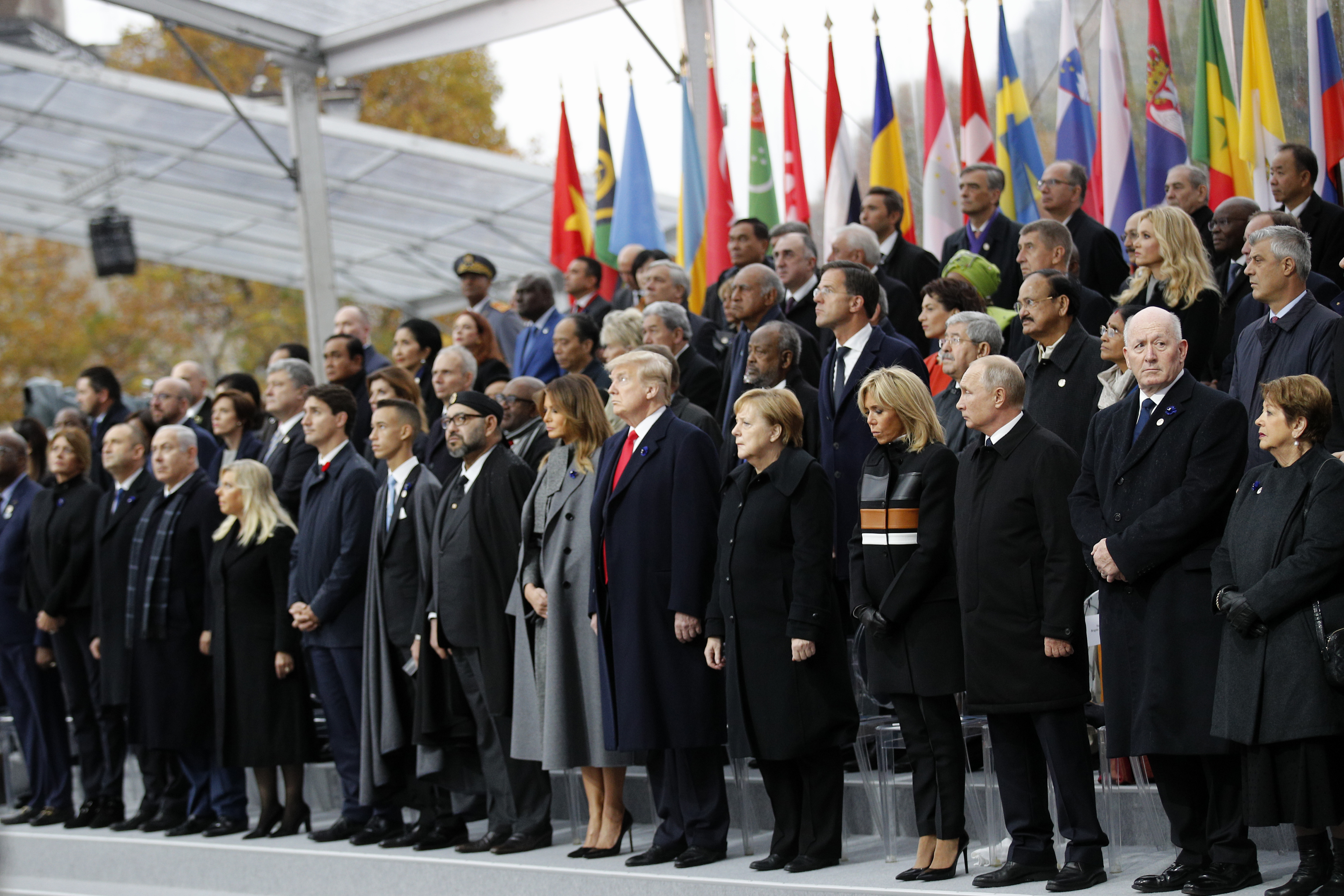World leaders gather in Paris a century after WWI armistice
PARIS — World leaders with the power to make war but a duty to preserve the peace gathered by the dozens Sunday to mark the end of World War I's slaughter 100 years ago, turning Paris in the epicenter of global commemorations that drove home a powerful message: never again.
Over 60 heads of state and government were taking part in a solemn ceremony at the Tomb of the Unknown Soldier, the mute and powerful symbol of sacrifice to the millions who died from 1914-18.
The Paris weather — grey and damp — seemed aptly fitting when remembering a war fought in mud and relentless horror.
The U.S. and Russian presidents were being joined by an array of leaders whose geographical spread showed how the "war to end all wars" left few corners of the earth untouched but which, little more than two decades later, was followed so quickly and catastrophically by the even deadlier World War II.
On the other side of the globe, Australia and New Zealand held ceremonies to recall how the war killed and wounded soldiers and civilians in unprecedented numbers and in gruesome new, mechanized ways.
Those countries lost tens of thousands of soldiers far away in Europe and, most memorably in the brutal 1915 battle of Gallipoli, in Turkey.
In Paris, the jewel that Germany sought to capture in 1914 but which the Allies fought successfully to defend, the armistice commemorations were being followed by the afternoon opening of a peace forum pushed by the host, French President Emmanuel Macron.
U.S. President Donald Trump will be the most notable absentee at the forum, where Macron's defense of multilateralism will take center stage. Trump lives by an "America First" credo, and plans to visit the American cemetery at Suresnes on the outskirts of Paris before heading home.
On Saturday, he was criticized for canceling a visit to the Belleau Wood battleground northeast of Paris because of rain.
In the four years of fighting, remembered for brutal trench warfare and the first use of gas, France, the British empire, Russia and the United States had the main armies opposing a German-led coalition that also included the Austro-Hungarian and Ottoman empires. Almost 10 million soldiers died, sometimes tens of thousands on a single day.
The United States came late to the war, in April 1917, but over 1½ years it became a key player in the conflict and tipped the scales for the allies. When the war ended on Nov. 11, 1918, the U.S. armed forces was on the cusp of becoming the major military power in the world.
Even though Germany was at the heart of provoking two world wars over the past century, the nation has become a beacon of European and international cooperation since.
On Sunday, Chancellor Angela Merkel met with the head of the United Nations, born from the ashes of World War II, and the president of Serbia. It was a Serb teenager, Gavrilo Princip, who assassinated the Austro-Hungarian crown prince in Sarajevo in 1914 to set off events which led to the outbreak of war.






